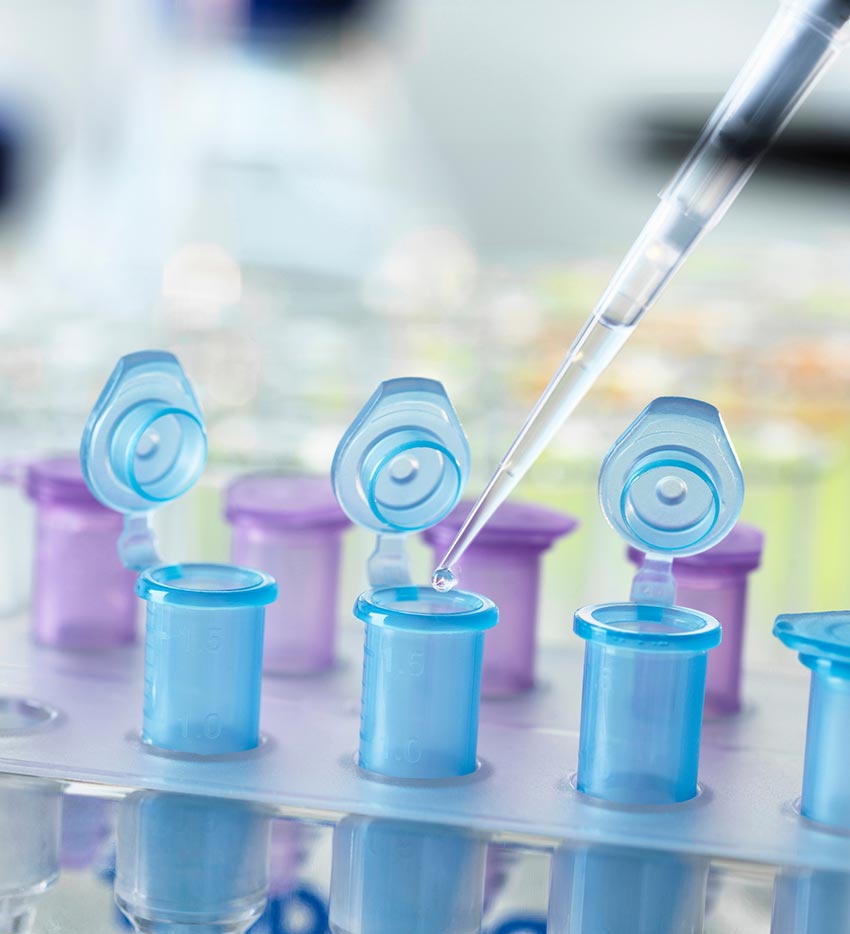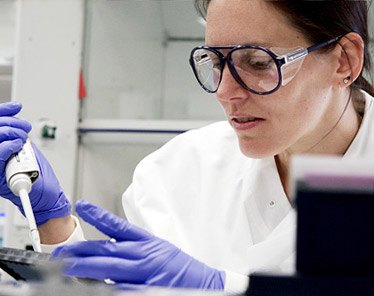Oncology
Otsuka Pharmaceutical tackles leukemia and other blood cancers
Cancer has one of the highest mortality rates of all diseases worldwide. In Japan too it is the number one cause of death, and naturally, there is an urgent need for new drugs. In 1983 Otsuka established the Fujii Memorial Research Institute (originally the Biwako Research Institute), and has been engaged in anti-cancer drug research since aspiring to help cancer patients worldwide. In addition to our own drug discovery, we are collaborating with organizations inside and outside Japan to provide new treatment options, particularly in the areas of hematology and immunology.
In 2008, Otsuka Pharmaceutical acquired the entire business built around the drug for the conditioning regimen prior to hematopoietic progenitor cell transplantation and rolled out the product globally. As a pre-treatment prior to hematopoietic progenitor cell transplantation carried out as a part of treatment for all forms of blood cancer, this drug is contributing to patients as a necessary drug that ranks alongside radiation therapy.


Otsuka Pharmaceutical further strengthened its R&D structure in the field of oncology by welcoming the bio-venture company Astex Pharmaceuticals, as a subsidiary. Astex possesses proprietary molecular design-based drug discovery technology. Together, the two companies are carrying out innovative new drug discovery using a novel approach. Otsuka also signed an agreement with ARIAD Pharmaceuticals* to commercialize ARIAD's treatment for resistant and intolerant chronic myeloid leukemia in ten Asian countries and regions including Japan, and to fund future clinical trials in those countries. Sales in Japan began in 2016.
- *Acquired by Takeda in 2017
Otsuka Pharmaceutical aims to contribute to the field of oncology in both diagnosis and treatment, providing not only therapeutic drugs but also diagnostic pharmaceuticals. It has developed and markets products used in the monitoring of acute myeloid leukemia (AML) and myelodysplastic syndromes (MDS). Also, it has been marketing in Japan an international-standard in-vitro diagnostic reagent that can be used as a diagnostic aid and to monitor treatment effects in chronic myelogenous leukemia (CML). Through connections and collaborations, such as joint research with the National Cancer Center Japan and medical institutions in cancer gene panel tests for hematopoietic tumors, we aim to contribute to people's health through the discovery and development of diagnostic products.
Strengthening collaborations in oncology
We collaborate with companies and academia conducting specialized research based on wholly new approaches.

Astex Pharmaceuticals (U.K.)
Astex, a leading company in fragment-based drug discovery, became a wholly-owned subsidiary of Otsuka Pharmaceutical in 2013. Fragment-based drug discovery is a molecular design technique in which the interaction between a fragment of a very small molecule and a large protein molecule involved in a disease is identified using X-ray diffraction. This unique approach can be used to help create innovative new drugs.
Astex has also played a leading role in establishing the first-ever cryo-electron microscopy* consortium that is able to view three-dimensional structures, such as proteins, at the atomic level. Together with participating companies and researchers at the University of Cambridge, we aim to utilize the approach in our drug discovery research.
- *Three researchers who contributed to the development of the observation method received the Nobel Prize in Chemistry in 2017.

Osaka University (Japan)
In 2017, we entered into a comprehensive collaborations agreement on advanced research with IFReC (Osaka University Immunology Frontier Research Center). Otsuka supports further development of IFReC's advanced basic research on immunology with the aim of combining the research results with original research by Otsuka, leading to the development of new drugs for the benefit of all. We also entered into an exclusive licensing agreement on a novel "CAR-T Cell Therapy" for multiple myeloma in 2018 and a new anti-tumor antibody in 2022.










